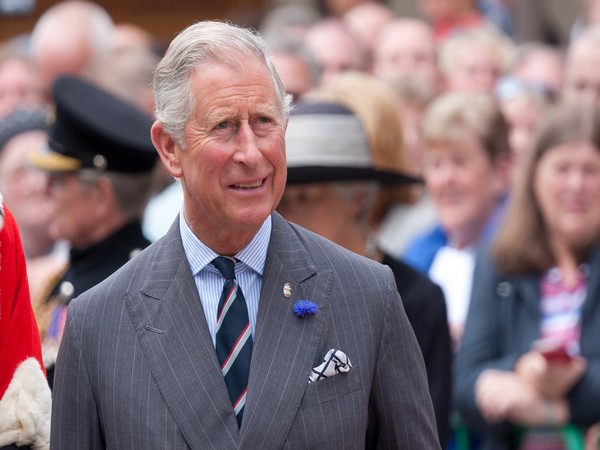Prince Charles leads UK’s VJ Day World War II end commemoration
“The Battle of Kohima is one of the forgotten battles of the Second World War but it was in Kohima 5,000-feet in the Nagaland Hills in North East India, where the famous Battle of the Tennis Court was fought, which stopped the Japanese advance into India,” said Shrabani Basu, UK-based historian and author of 'For King and Another Country' and 'Spy Princess'.

- Country:
- United Kingdom
Britain’s Prince Charles on Saturday led the UK's commemoration of the 75th anniversary of Victory over Japan (VJ) Day – the day World War II ended with Japan's surrender in 1945. The 71-year-old heir to the British throne, joined by wife Camilla – Duchess of Cornwall, led a two-minute UK-wide silence from the National Memorial Arboretum in Staffordshire in the West Midlands region of England as part of a service of remembrance. It is estimated that there were 71,000 British and Commonwealth, including Indian, casualties of the war against Japan, including more than 12,000 prisoners of war who died in Japanese captivity. The fighting in Europe had ended in May 1945, but many British forces were still fighting against Japan in East Asia. The fighting in the Asia-Pacific took place from Hawaii to North-East India with Britain and the Commonwealth’s principal fighting force, the Fourteenth Army, in charge – described as one of the most diverse in history with more than 40 languages spoken. “The Battle of Kohima is one of the forgotten battles of the Second World War but it was in Kohima 5,000-feet in the Nagaland Hills in North East India, where the famous Battle of the Tennis Court was fought, which stopped the Japanese advance into India,” said Shrabani Basu, UK-based historian and author of 'For King and Another Country' and 'Spy Princess'.
“In April 1944, the Japanese troops advanced and went right up to the bungalow of the Deputy Commissioner. For the next three weeks, a pitched battle was fought by British and Indian troops in the grounds and the tennis court of this bungalow. They ran out of food, they ran out of the water but they continued and they managed to stop the Japanese advance in hand to hand combat,” she recalled. The UK has been holding virtual tribute events for the tens of thousands of service personnel from across the UK and the Commonwealth who fought and died in the war against Japan, including all those who were held as prisoners of war by the Japanese.
“The Allied response to this defeat relied heavily on the use of the British Indian Army: when the cosmopolitan Fourteenth Army, under the command of General Slim, was formed in 1943 to combat the Japanese, it included 700,000 Indian men,” said Dr Diya Gupta, an academic researcher on India and the World War II. “Even on VJ Day, the battle for freedom was still far from over, both for Indian soldiers serving in the British Indian Army and for the INA [Subhash Chandra Bose’s Indian National Army] men. While the former’s contributions are only beginning to be recognised now, it was the latter, who, just after the war, transformed into a rallying symbol for Indian independence from the British Empire,” she added.
During Saturday’s commemorations, UK Prime Minister Boris Johnson joined other world leaders, including US President Donald Trump, in recording a video message to thank veterans of the Second World War. "On this 75th anniversary of the end of the Second World War, we pay tribute to the heroes deployed thousands of miles away in the mountains, islands and rainforests of Asia,” said Johnson.
"Unable to celebrate the victory in Europe, and among the last to return home, today we recognise the bravery and ingenuity of those who, in the face of adversity, restored peace and prosperity to the world. Their immeasurable sacrifice changed the course of history and, at today's commemorations, we take the opportunity to say what should be said every day – thank you," he said. After Japan rejected an ultimatum for peace, the US dropped two atomic bombs on the cities of Hiroshima and Nagasaki which killed an estimated 214,000 people and two weeks later Japan surrendered on August 15, 1945.
(This story has not been edited by Devdiscourse staff and is auto-generated from a syndicated feed.)










